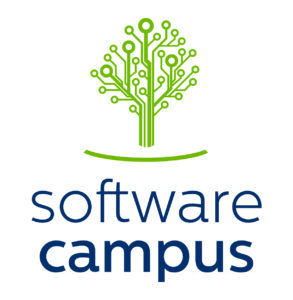RISCoT – Security Analysis of Trusted Execution Environments on RISC-V
RISCoT - Security Analysis of Trusted Runtime Environments on RISC-V
 With the increasing spread of apps in all areas of life, the amount of functionalities offered by a mobile device is growing. This in turn increases the demands on the security of the devices, as the most intimate data can be found on them — from private photos to business mails and customer data to one’s own bank account.
With the increasing spread of apps in all areas of life, the amount of functionalities offered by a mobile device is growing. This in turn increases the demands on the security of the devices, as the most intimate data can be found on them — from private photos to business mails and customer data to one’s own bank account.
In the area of this broad research field, trusted runtime environments, so-called Trusted Execution Environments (TEEs), have become established and are now used extensively in mobile devices. TEEs provide isolation within a processor and contain a separate execution area that can be used for special applications. The strong isolation between the TEE and the ordinary operating system makes it suitable for particularly safety-critical operations. In practice, TEEs are a central building block and the basis for encryption functions and secure authentication.
While today most processors in mobile devices are based on the ARM architecture, which in turn offers TEEs, research and industry are looking towards RISC-V, a license-free architecture. While the architecture has been used successfully in the industrial sector for years, experience for the mobile market is still very limited. Nevertheless, the technology offers many opportunities for innovation, as functional and safety-relevant requirements for a system are taken into account early in the development and can thus be implemented more effectively.
In RISCoT, tools and techniques are developed for security researchers to test TEE implementations on RISC-V and applications based on it for their security. This supports both existing and future developments in research and industry.
Mit der wachsenden Verbreitung von Apps in allen Lebensbereichen nimmt die Menge an Funktionalitäten zu, die ein mobiles Gerät bietet. Dadurch steigen die Anforderungen an die Sicherheit der Geräte, da intimste Daten darauf zu finden sind, von privaten Fotos über geschäftliche Mails und Kundendaten bis hin zum eigenen Bankkonto.
Im Bereich dieses breiten Forschungsfeldes haben sich vertrauenswürdige Laufzeitumgebungen, sogenannte Trusted Execution Environments (TEE), durchgesetzt, die mittlerweile flächendeckend in mobilen Endgeräten eingesetzt werden. TEEs bieten Isolation innerhalb eines Prozessors und beinhalten einen getrennten Ausführungsbereich, der für spezielle Anwendungen genutzt werden kann. Durch die starke Isolation zwischen TEE und gewöhnlichem Betriebssystem eignet sich das System für besonders sicherheitskritische Operationen. In der Praxis sind TEEs ein zentraler Baustein und die Basis für Verschlüsselungsfunktionen und sichere Authentifizierung.
Während heute die meisten Prozessoren in mobilen Geräten auf der ARM-Architektur basieren, die wiederum TEEs anbietet, schauen Forschung und Industrie Richtung RISC-V, einer lizenzfreien Architektur. Während die Architektur im Industriebereich schon jahrelang erfolgreich genutzt wird, sind die Erfahrungen für den mobilen Markt noch sehr beschränkt. Dennoch bietet die Technologie viele Chancen für Innovationen, da funktionale und sicherheitsrelevante Anforderungen an ein System früh in der Entwicklung berücksichtigt werden und damit effektiver umgesetzt werden können.
Bei RISCoT werden Werkzeuge und Techniken für Sicherheitsforscher entwickelt, um TEE-Implementierungen auf RISC-V und darauf basierenden Anwendungen auf ihre Sicherheit hin zu überprüfen. Damit werden sowohl bestehende wie auch zukünftige Entwicklungen in Forschung und Industrie unterstützt.
Publications
- Bove, D. (2022). Secure Services for Standard RISC-V Architectures. In Association for Computing Machinery (Eds.), Proceedings of the 17th International Conference on Availability, Reliability and Security. Vienna, Austria, AT.
URL: https://dl.acm.org/doi/10.1145/3538969.3538998 - Bove, D. (2022). SoK: The Evolution of Trusted UI on Mobile. In Association for Computing Machinery (Eds.), ASIA CCS '22: Proceedings of the 2022 ACM Asia Conference on Computer and Communications Security (pp. 616 - 629). Nagasaki, Japan.
URL: https://dl.acm.org/doi/10.1145/3488932.3517417
Downloads
Source code “Keystone for HiFive Unmatched – Debian/Ubuntu”: keystone-unmatched-ubuntu.tar.gz (Linux build, 66 KB)
Presentation slides “Secure Services for Standard RISC-V Architectures”: riscv-ss-presentation.pdf [mirror]
RISCoT Poster (German): A4_RISCoT_Poster_German.pdf
Funding details
Name of the project: Software Campus 2.0 (FAU)
Acronym of the microproject: RISCoT
Project lead: Davide Bove

